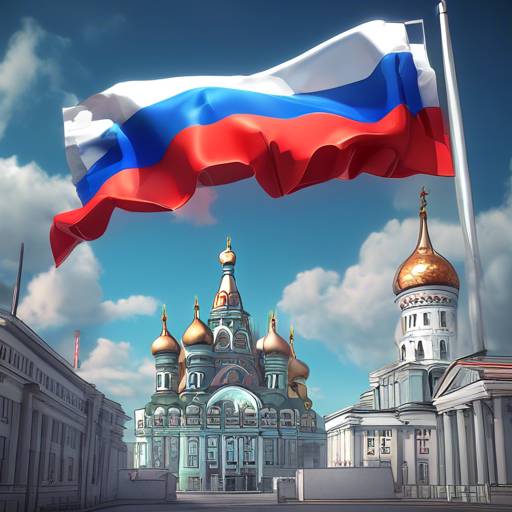Russia’s Compliance Rating Downgraded by FATF
The Financial Action Task Force (FATF) has downgraded Russia’s compliance rating due to its “insufficient regulation of virtual assets and cryptocurrencies.” The decision was made during a plenary meeting on February 23, according to German Neglyad, the Deputy Head of Rosfinmonitoring. The rating downgrade was a result of an analysis conducted by the Eurasian Group on Combating Money Laundering and the Financing of Terrorism (EAG), an affiliate of FATF. This news comes as a blow to Moscow, as Russia had previously passed a full FATF audit in 2019 with the highest compliance ranking.
Moscow’s Response to the Downgrading
In response to the downgrade, Neglyad acknowledged that Russia’s crypto regulations needed attention. He emphasized the need to regulate the circulation of cryptocurrency and monitor the activities of cryptocurrency exchanges. Neglyad also stated that the government should align with domestic financial organizations. It is clear that Moscow needs to take action to address these deficiencies and improve its regulatory framework for virtual assets and cryptocurrencies.
Insufficient Steps Taken by Russia
The FATF report acknowledged that Russia had taken some steps towards addressing crypto regulation but deemed them insufficient. This likely refers to the introduction of the “On Digital Financial Assets” legislation in mid-2020. However, experts in the Russian crypto industry criticized this law, stating that it lacked comprehensive regulatory measures and only served as a glossary of crypto-related terms. Subsequent attempts to regulate the industry have failed due to disagreements between the Central Bank and major government ministries.
Impasse Between Central Bank and Government Ministries
The Central Bank and government ministries are at odds over how to regulate the resurgent domestic crypto sector. The ministries aim to legalize the sector and bring it into the tax system, specifically targeting the crypto mining industry. On the other hand, the Central Bank prefers to ban crypto altogether and focus on its digital ruble project. This disagreement has hindered progress in establishing a comprehensive regulatory framework for cryptocurrencies in Russia.
Increased Use of Crypto for Cross-Border Payments
Complicating matters further is the fact that many Russian firms have turned to crypto as a cross-border payment tool to bypass sanctions imposed by the US, UK, and EU. According to Rosfinmonitoring data, the number of transactions conducted in Russia using crypto tripled from the beginning of last year to November 2023. It is crucial for lawmakers to swiftly determine how they want to regulate the crypto sector to address these challenges and ensure compliance with international standards.
Russia Must Improve Crypto Regulation
The downgrade of Russia’s compliance rating by FATF highlights the need for improved regulation of virtual assets and cryptocurrencies in the country. Moscow must respond by implementing effective measures to regulate the circulation of cryptocurrency and monitor the activities of exchanges. By aligning with domestic financial organizations and addressing deficiencies in its regulatory framework, Russia can demonstrate its commitment to combating money laundering and financing of terrorism through enhanced crypto regulation.
Hot Take: Russia’s Crypto Regulation Needs Urgent Attention
The recent downgrade of Russia’s compliance rating by FATF underscores the urgent need for improved regulation of virtual assets and cryptocurrencies in the country. The insufficient steps taken by Russia thus far have been deemed inadequate by FATF, necessitating swift action from Moscow. By addressing these deficiencies and implementing robust regulatory measures, Russia can enhance its reputation in the global crypto market and ensure compliance with international standards. It is crucial for lawmakers to resolve their differences and establish a comprehensive regulatory framework that balances innovation and security in the crypto sector.





 By
By
 By
By
 By
By
 By
By
